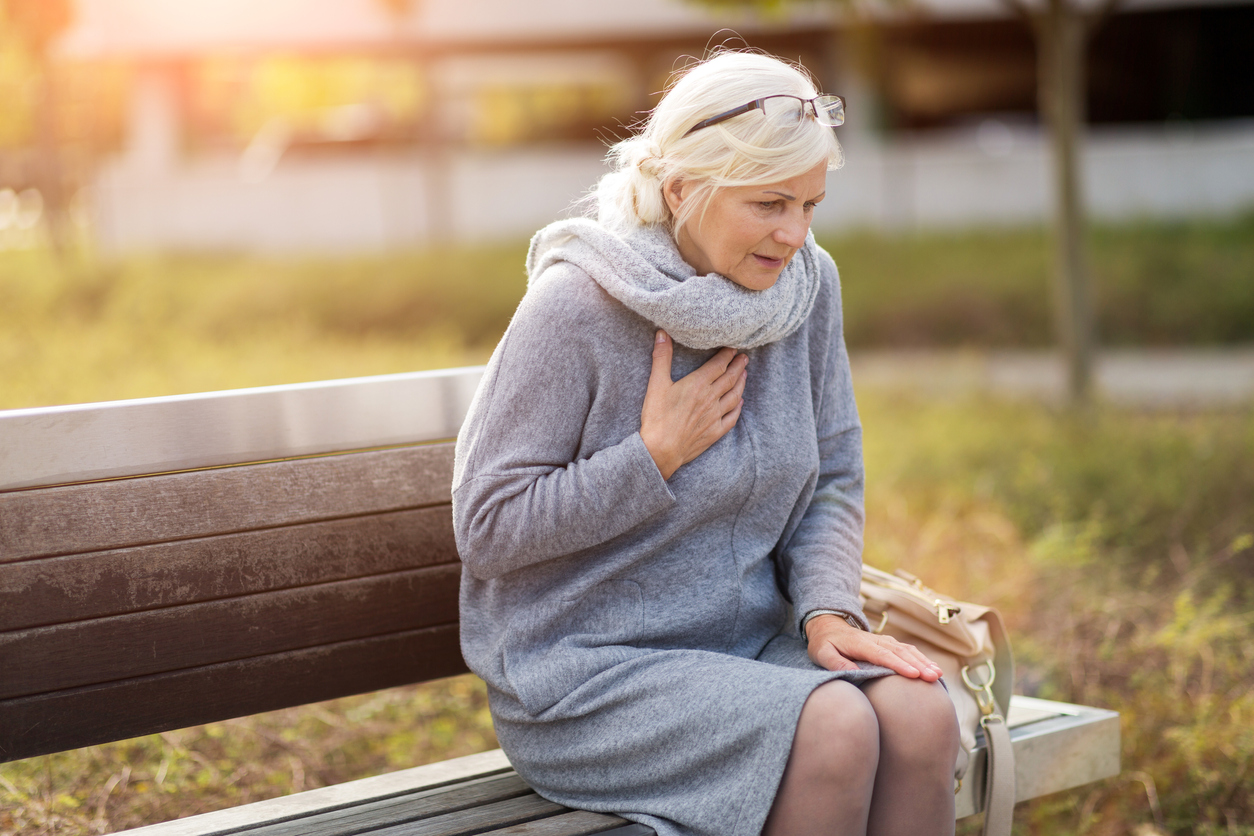Sudden Cardiac Arrest (SCA) may sound like the same thing as a heart attack, but the only similarity between them is that they both affect the heart. A heart attack is caused by a blockage in the blood flow to the heart. SCA, on the other hand, affects the electrical impulses that cause the heart muscle to contract. Interrupting those electrical signals causes the heart to stop beating. Although both events can happen at the same time, they can each also happen on their own.
SCA affects men more often than women, but according to UT Southwestern researchers, women are less likely to survive an attack that occurs outside a hospital setting. The reasons for this are complicated, but experts believe that this happens partly because people are less likely to recognize warning signs in women, and they may receive different treatment from men. For example, strangers are less likely to perform CPR on women.
But that doesn’t mean women can’t survive SCA. Knowing how to recognize the risk factors and symptoms can help, and being prepared to respond to an attack is vital. To protect your loved ones, especially senior women living in the Bronx, it’s important to have the facts about SCA and elderly women. Here’s what you need to know:
1. Know the Risk Factors
Because it happens suddenly, people think sudden cardiac arrest occurs without warning. But the truth is that certain conditions increase the risk of SCA. These are the main risk factors to be aware of:
- Elderly
- Heart arrhythmia
- A family history of heart disease
- Smokers
- High cholesterol
- High blood pressure
- Obesity
- Substance use disorder
2. Work With Your Doctor To Reduce the Risk
For people with these risk factors, it’s even more important to work with their doctor to protect their heart health. Although heart attacks and SCA are two different processes, the same steps to reduce your chances of one will improve your odds of avoiding the other.
It’s important for seniors to take all prescribed medications and make heart-healthy lifestyle changes. In some cases, your doctor may recommend an implantable cardioverter-defibrillator device. This uses a mild electrical charge to maintain a healthy heart rhythm if it detects arrhythmia.
3. Know the Warning Signs–Especially in Women
Although sudden cardiac arrest comes on quickly, most people have warning signs ahead of time. Over 50% of people experience early symptoms of an impending SCA within a two-week span before it happens. These include dizziness, fatigue, nausea, vomiting, or an unusually fast heartbeat. People may also have flu-like symptoms.
An important thing to know is that men and women often have different symptoms. Men are more likely to have chest pain, which is typically taken seriously. Women, on the other hand, generally experience shortness of breath, a symptom that can be dismissed more easily. Although this symptom may seem milder than chest pain, the results can be just as deadly.
4. Recognize Sudden Cardiac Arrest
Symptoms such as shortness of breath, chest pain, or vomiting may increase in the hour before an SCA. People often feel dizzy or lightheaded. When SCA occurs, the first symptom is a loss of consciousness, which is caused when the heart stops beating. If you see someone faint, the first thing you should do is check for a pulse. If they have no pulse, they’ve likely had an SCA, and they must receive immediate treatment.
5. Respond Quickly to SCA
Sudden cardiac arrest is a medical emergency, and you should call 911 immediately. The patient needs to be treated with a defibrillator to restore a heart rhythm. If you’re in a public place, such as an airport or business, there may be an automated external defibrillator (AED) available.
These devices provide an electric shock to correct a dangerous heart arrhythmia. They’re designed to only work if they detect this arrhythmia, to prevent shocking someone who has simply fainted, but who isn’t having SCA. Simply follow the instructions on the AED.
If there is no defibrillator available, it’s vital to give the patient cardiopulmonary resuscitation (CPR) until help arrives. The 911 dispatcher can talk you through the procedure if you aren’t trained to do it. CPR can help reduce damage by keeping oxygen-carrying blood moving through the body until the heart can be started again.
SCA is a serious, life-threatening event. But if you do what you can to mitigate the risks and recognize the signs, you can improve your loved one’s chances of surviving it. Elderly women are less likely to suffer SCA, but they are more likely to die if they do.
David York Agency Home Healthcare Can Help Seniors in the Bronx
At the David York Home Healthcare Agency, our caregivers understand the importance of helping your loved one maintain the connections and activities that bring them joy. For information about how we can help support seniors to live their best lives, contact us today!
DYA understands the many challenges and risks faced by the aging and elderly and are dedicated to providing care to support them through all of those ups and down. At David York Home Healthcare Agency, extraordinary service is what sets us apart from other companies in the Bronx that provide in-home healthcare services.
DYA we could provide direction as to how to manage the total care of your senior loved one. Whatever your care needs, we are there for you, always striving to exceed your expectations. For more information about David York Agency’s qualified, compassionate caregivers, contact us at (718) 376-7755. A free phone consultation can help you determine what services would meet your needs. We aim to provide you and your loved one with the assistance they need. If you’d like to hear more from us, please like us on Facebook or follow us on Twitter or LinkedIn.
For more helpful tips and information, check out our blog or contact us today.







